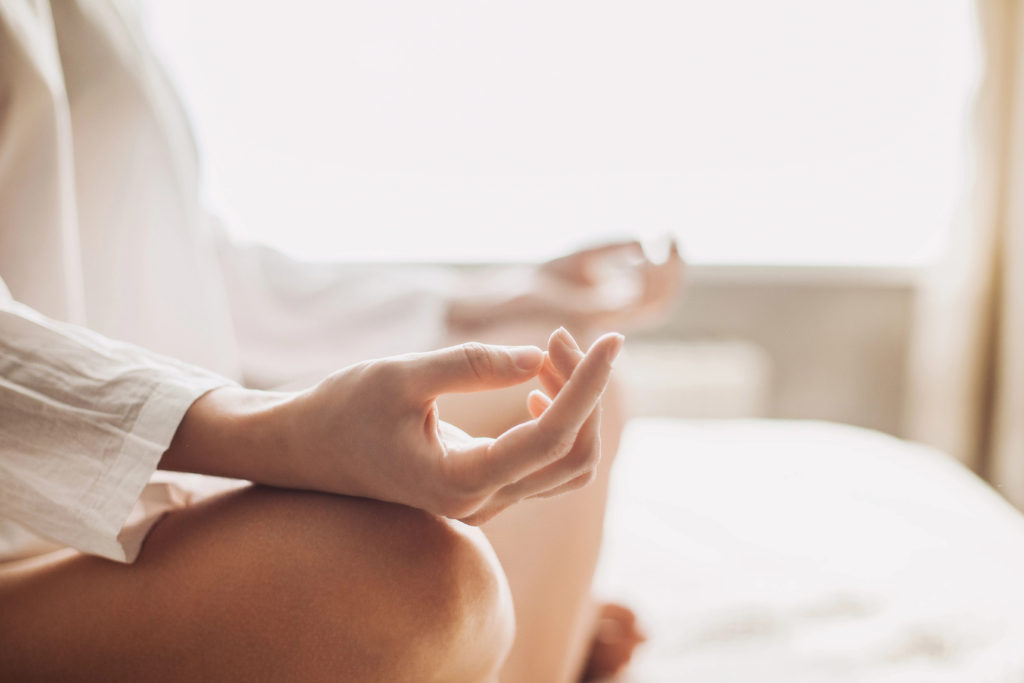ARTICLE: Relaxation, Yoga Therapy
Relaxation is a skill to be learnt
I have never realized how harsh I was with my body… back in those ‘business suit-action plans-corporate times’ I used to go jogging, did zumba and such high impact high intensity exercises. Every single day. I believed that’s the only way.
I believed in “No pain, no gain”.
Then I came to yoga and as I see it now – I have just transferred my attitude into a new setting – thankfully milder, but still…
Being diligent and ‘pushing’ the practice of tantric hatha which brings purification of physical body as well as energy channels, emotions and mind, had surely benefit me greatly. For quite a long time it served me well.
However, pushing myself – the only way I knew to move forward and to overcome challenges – stopped working at some point. Approach that had worked anytime when I’ve felt unwell, sad, cold or lonely, suddenly didn’t bring the same relief during a particular period of my life.
My practice did provide support, yet it couldn’t remove the deep pain I have been feeling. Looking back, I think this was the first time that I got to practice the ‘other’ attitude – relaxation (or surrender, if you will).
As the saying goes, each coin has two sides. In Taoism, these two sides of the same coin are called yin and yang, represented by a circle divided by an S-shaped line into a black and a white part, each containing a ‘seed’ of the other. In this context, the achievement, the drive ‘to go for it’ can be seen as the active, yang. And, on the other hand, there’s relaxation, allowance, softening and accepting of what is – the yin.
The dynamic balance of yin and yang is what creates life and this dance is also optimally part of any yoga class or another practice we do. For instance a yoga class consists of dynamic parts like sun salutations, movement in asana (postures) flow, stretching in static asanas, finally followed by relaxation in Shavasana (the corpse pose).
In a meditation, the will, perseverance and determination to keep sitting, focusing, resisting any urges to scratch, shift or interrupt the practice in any way can be seen as the yang.
Acceptance of ever-present thoughts (which may be perceived as wrong or disturbing the meditation), watching the mind running away and gently bringing it back, patience and kindness towards oneself may be called yin.
In each practice there’s a part that brings the ‘push’ – that active, direct, even challenging part which is needed in order to move beyond what’s restricting us. And then, for the growth to happen, we need to allow time to settle into that new place to which we ‘pushed’ our way.
Growth happens in a state of complete relaxation, state where there’s no resistance. That’s when the new order can settle, that’s when integration and healing happens.
In other words, we need to be active and put some energy and will into what we want and then we need to relax in order to fully receive and stabilize effects of our effort.
The balance of ‘push & relax’ would vary throughout times. It still amazes me how much tension I can hold. It amazes me even more how much I can ‘achieve’ without pushing but rather simply relaxing into the situation.
To slow down is an overlooked yet crucial skill I believe we need to master. It’s vital for our lives. It’s necessary for recovery, it’s necessary for everyday life even if I think “I haven’t done anything, relaxing equals being lazy and waste of time, it’s not deserved.”…
Relaxation is a skill I am still learning – by practicing. My mind still operates within that goal-oriented setting I’ve adopted from what’s surrounded me most of my life. Relaxation that I speak about is, however, not lying down on a couch staring at TV nor sitting at PC and playing games or chatting…
Relaxation is something that I am experiencing in Yoga Nidra (the yogic practice of conscious sleep) or guided Shavasana (which has to be long enough). Science nowadays concurs that there’s a difference in ‘couch relaxation‘ and ‘conscious relaxation’ in terms of their effects on one’s well-being and health.
In a performance and achievement oriented society the skill of relaxation is crucial to feel balanced and maintain good health.

